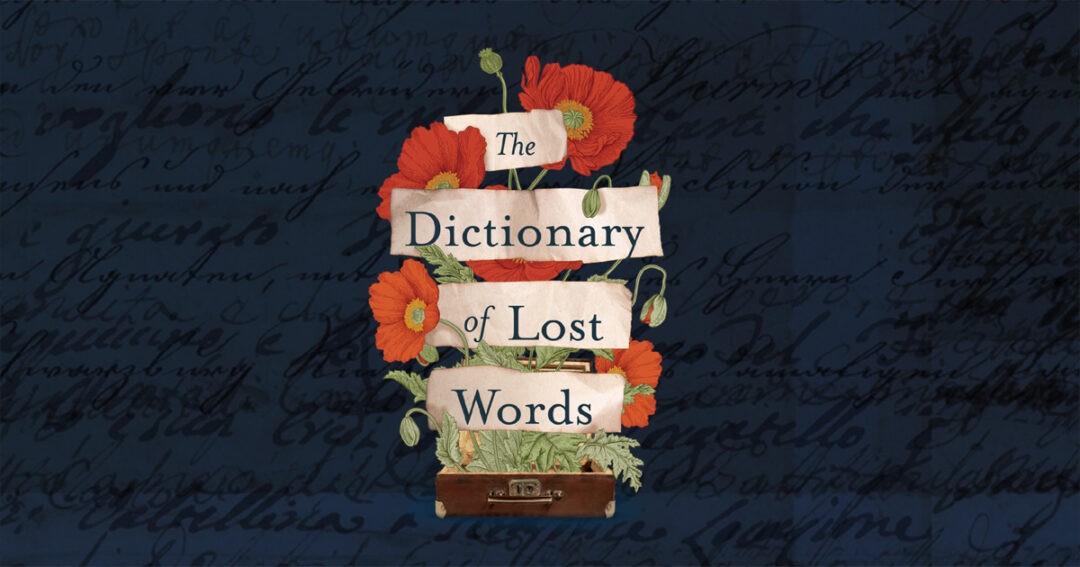The Dictionary Of Lost Words is a novel by Adelaide author, Pip Williams, adapted for the stage by South Australian-based playwright, Verity Laughton, which has now had its world premiere at the Adelaide Festival Centre by the State Theatre Company of South Australia.
As a production, it is both lavish and austere, with its tone ranging from serious to mischievous, as it dutifully progresses its way through the novel from A to Z.
There is much to admire in the performances of the cast of eight actors, along with some masterful set design and flourishes of inspiration by the lighting and sound designers.
The story centres around motherless and ever curious, Esme (Tilda Cobham-Hervey), who spends her childhood in the Scriptorium, a converted garden shed in Oxford where her father, Harry Nicoll (Brett Archer), and a team of lexicographers guided by Sir James Murray (Chris Pitman) are gathering words for the very first Oxford English Dictionary. Esme regularly hides beneath the sorting table and catches a word on a “slip” as it falls and soon, she finds other words that have been neglected by the men. Out of this activity, Esme begins her own collection of words, of “lost words”.
She comes to realise that most of the neglected words relate to women’s experiences, with further clarity arising as she mixes with actress and suffragette, Tilda Taylor (Angela Mahlatjie). She is spurred on by these insights to publish her important collections of words, Women’s Words and Their Meanings.
Tilda Cobham-Hervey was quoted in the press as being excited and a little apprehensive about returning to the stage. We are grateful that she has. Cobham-Hervey delivers an inspired performance, embodying Esme from hapless four-year-old, to pushy teen, to boundless adult, with great aplomb. Masterfully, she maintains the thread of Esme throughout these transformations with precise physicality. Her Esme has many magical moments with the family’s “bondmaid”, Lizzy Lester (Rachel Burke). Burke’s Lizzy is a wonderful fellow traveller with Esme, with Burke displaying a delicately-balanced interplay between being the “responsible” person while never forgetting that she is of lower status and not the one with the option of becoming a “lady”.
One of the early, significant scenes is when Esme first experiences her period. Lizzy comes to the rescue with her worldly-wise knowlege of what to do, even though the term, “menstration”, is completely foreign to her. This is our first taste of the layers that words have. Words can label and define and facilitate exhange of ideas, but some words are out of reach of others, at either end of the social spectrum. Esme’s hilarious encounter with the word, “c*nt”, in Oxford’s Covered Market, it a great case in point. Here is a word unknown or unacknowledged by the “proper” people, while being spent like loose change by the likes of Mabel (Ksenja Logos), a common inhabitant of the markets. Logos holds court whenever on stage as Mabel, with unbridled energy, mischief, and pathos.
However, most of the action happens in the Scriptorium, and it is here we have a stagewide, curved backdrop of illuminated pigeon holes, built in sepia-toned timber. This rear wall, extending a few metres upwards, is used variously as an indexing system for the lexiographers, prop stowing station for various items like tea pots, letterboxes for clandestine delivery of suffragette literature, and clever camoflage for some embedded doorways. Designer, Jonathon Oxlade, has excelled with this expansive backdrop, made even more versatile by providing a fascade for a second stage, which runs along the top of this wonder wall. Further acolades are due for the clever projection system in which simple labels, maps, and items placed under a lamp on the table centre stage are then projected across the top, white, backdrop/screen that also spans the stage completely. This device helps us stay abreast of the timeline (which races at a giddying pace, especially early on), while providing a rich layer of meaning to the action. For example, some of the sample “slips” are illuminated and projected this way, rendering an intimate experience of these artifacts. Generally, this clever layer of delight is used to support the action and narrative, but there are times when its excess becomes distracting; the dish of water and the drawn out encroachment of black beads to symbolise the obliteration of life and love during World War 1 (it almost lasts as long as the war).
While the projections sometimes stole the limelight, the costumes (Ailsa Paterson), lighting (Trent Suidgeest), and sound design (Max Lyandvert), all worked as one, beautifully crafting landscapes, soundscapes, and adornments to help the words jump off the stage, as it were.
Talking of words, this play has lots of them. Laughton seems to have included as many nuances from the book as possible, at the cost of making this a long production; three hours including interval. Ironically, it could benefit from “losing” some words, some strands of narrative, to ensure we still have the physical, emotional, and psychological energy to embrace a new character who appears at the end; Megan (Ksenja Logos), a University of Adelaide lecturer who happens to be Esme’s daughter. Unintentionally, the extended duration of this play with its multiple secondary storylines, does create some empathy for Sir James Murray’s relegation of some words to oblivion!
Overall, director, Jessica Arthur, has brought Esme’s world and life alive in a literary extravaganza that remains delightfully grounded in the vernacular while reaching for the lexicographic stars. And just as some readers prefer the tactile experience of holding a beautifully bound book for complete immersion in a story, so, too, theatregoers keen to see this play should opt for this State Theatre Company production with its abundance of glorious accoutrements, before it returns in more minimilist manifestations in the future.

